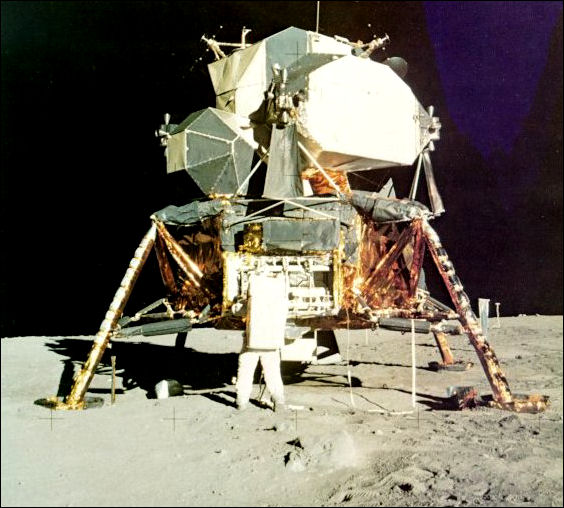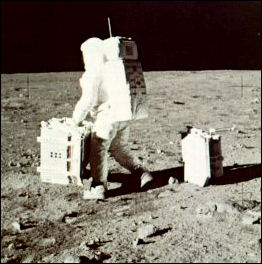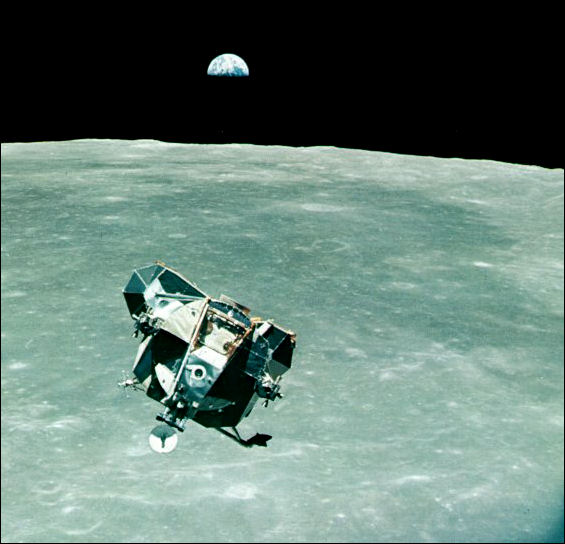
|
| Scientific experiments, stowed compactly for their trip to the Moon, are unpacked for deployment by Aldrin. Note the spread-leg stability of the landed LM, its sturdy legs foil-wrapped for thermal insulation. Beyond the right leg can be seen the solar-wind experiment, an exposed foil sheet that will be brought back to Earth for careful analysis; and beyond it the television camera. |




